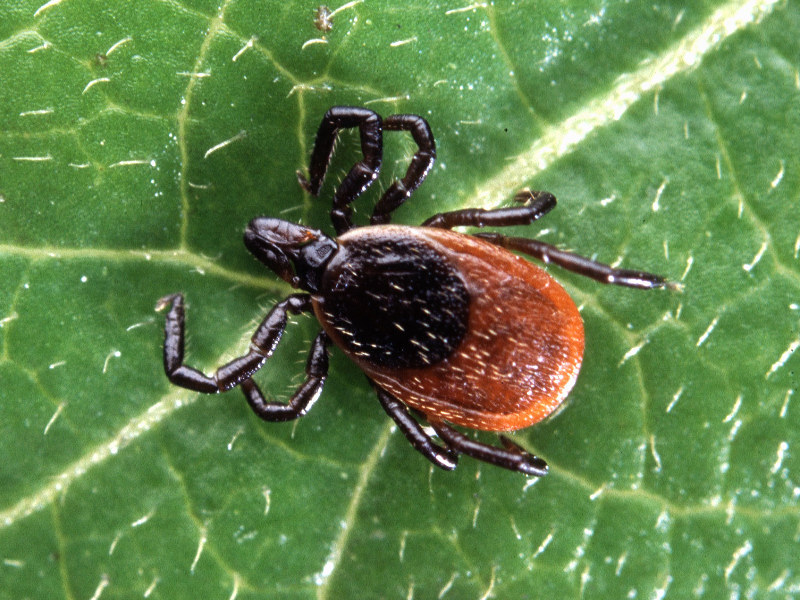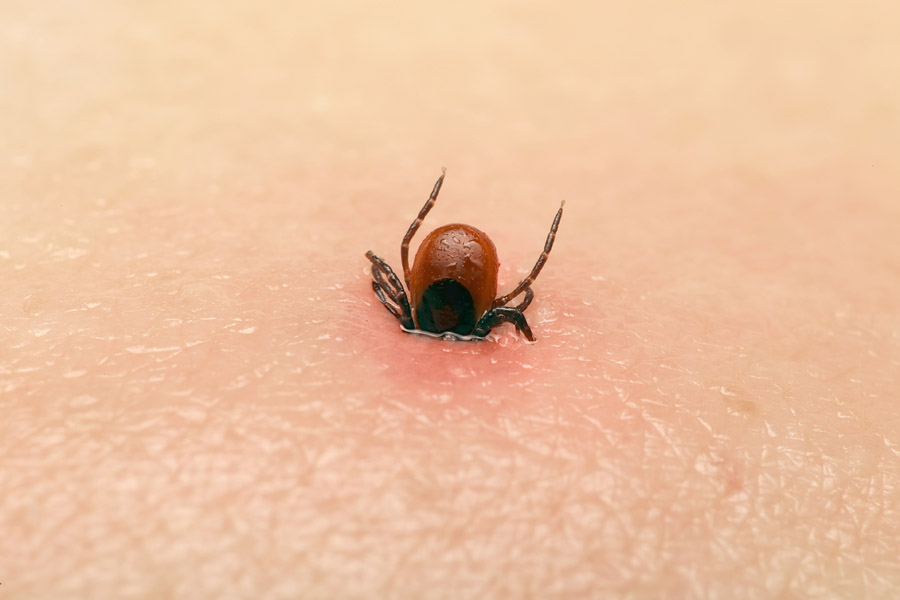In the age of highly-contagious COVID-19, folks are wondering if tick borne diseases are contagious.
The answer to this question is not black or white. Some of the most common tick borne diseases in the United States are Lyme disease, Anaplasmosis, and the potentially deadly Powassan virus. Though these tick borne diseases are not contagious, there is one very serious disease that has been found to be contagious.

Novel bunyavirus causes a contagious tick borne disease.
Recent reports from China say that the tick-borne illness, Novel bunyavirus, is causing Severe Fever with Thrombocytopenia Syndrome (SFTS). So far, about 40 people have been diagnosed with SFTS in China this year. SFTS with hemorrhagic fever not only has a fatality rate of 10 – 30%, it can be spread from person to person or animal to person. While most reports of this tick-borne illness come from Asia, the virus has been reported in the United States too, with less severe symptoms.

How is the SFTS virus contagious?
The Novel bunyavirus is contracted by humans from infected Asian ticks. The resulting SFTS virus can cause, “fever, gastrointestinal symptoms, thrombocytopenia, leukopenia, and elevated serum hepatic enzymes,” according to an article on Firstpost. Early symptoms are fever and fatigue, which can also attributed to other tick-borne infections. Patients, who experience hemorrhagic fever with SFTS, die of multi-organ failure. The disease is passed to humans from infected animals or humans by blood contact, through open wounds, and through the respiratory system. While there is potential for this disease to be carried by an infected person from other countries, officials are not yet sounding the alarm about that threat. The CDC reports that there have been asymptomatic infections. With no vaccines or specific treatment regimens, officials only recommend avoiding tick bites at this time.

Protect your family with Central Mass tick control.
As with many tick borne illnesses, prevention is key. The lack of cures and

vaccines for illnesses, like Lyme disease and Powassan virus make tick control an essential part of our lives. This means having your yard treated with barrier tick control spray during the spring, summer, and fall, and employing tick tubes for winter. Avoiding tick bites is truly our best hope. Even though Novel bunyavirus and resulting SFTS seem to be happening so far from Central Mass, we must realize the potential for infection in the United States.


 Not only can tick-borne illnesses infect humans, livestock, wildlife, and pets are also susceptible to tick-inflicted maladies. Dogs can get
Not only can tick-borne illnesses infect humans, livestock, wildlife, and pets are also susceptible to tick-inflicted maladies. Dogs can get